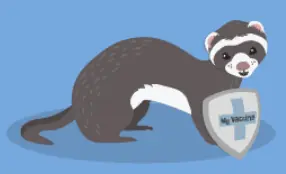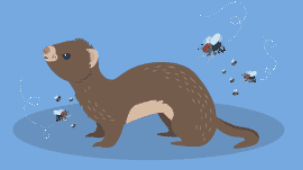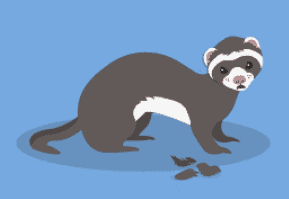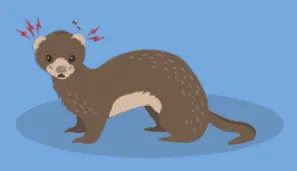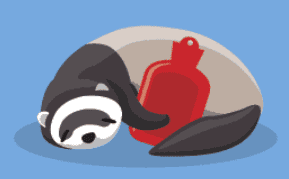Keeping your ferrets fit and healthy
You should check your ferrets regularly for any signs of ill health. Take young ferrets to the vet once a year for a check-up. Once they reach the age of 3 or older, take them twice a year to your vet. If you notice one of your ferrets is showing a change in behaviour or has changed their eating or drinking patterns, seek the advice of a vet as soon as possible.
Vaccinate your ferrets once a year. They should be vaccinated against canine distemper and, if you’re travelling abroad, rabies. Both can be fatal so it’s really important to keep on top of your ferrets’ vaccinations.
Common health problems
Ferret health check
You know your ferret best. If you think one of your ferrets isn’t behaving as normal or seems unwell, it is best to contact your vet as soon as possible and get them checked over.
Behaviour: Your ferrets are most active at dawn and dusk, so that’s the best time to see them having fun! When your ferrets are up and about, keep an eye on how they’re behaving. Check if they seem to have less energy than normal, if they’re sleeping more and whether they are eating and drinking as usual
Body: When handling your ferrets, take note if they’re sensitive to touch or seem to be in pain. Also keep an eye on any lumps or bumps
Eyes: Check regularly for any signs of discharge from your ferret’s eyes
Mobility: When your ferrets are alert and having fun playing around, keep an eye on how well they’re moving and if they are limping
Nose: Check your ferret’s nose regularly for any signs of discharge
Skin and coat: Keep an eye on your ferrets’ coat for any signs of fur loss and check their skin for any open wounds
Quick tip

Excel Ferret Nuggets
Neutering your ferrets
FEMALES:
If a jill isn’t mated or neutered, she will continue to cycle in oestrus, or season. This results in high circulating oestrogen levels which can lead to hair loss or anaemia. This can be very dangerous and even life-threatening. It is a good idea to seek advice from your vet to understand the different options available for neutering or using medication to stop the season.
MALES:
Neutering hobs is ideal for avoiding unwanted pregnancies and can decrease ferret odour. There are various options so please seek the advice of your vet for more information.
Our Burgess Excel Range



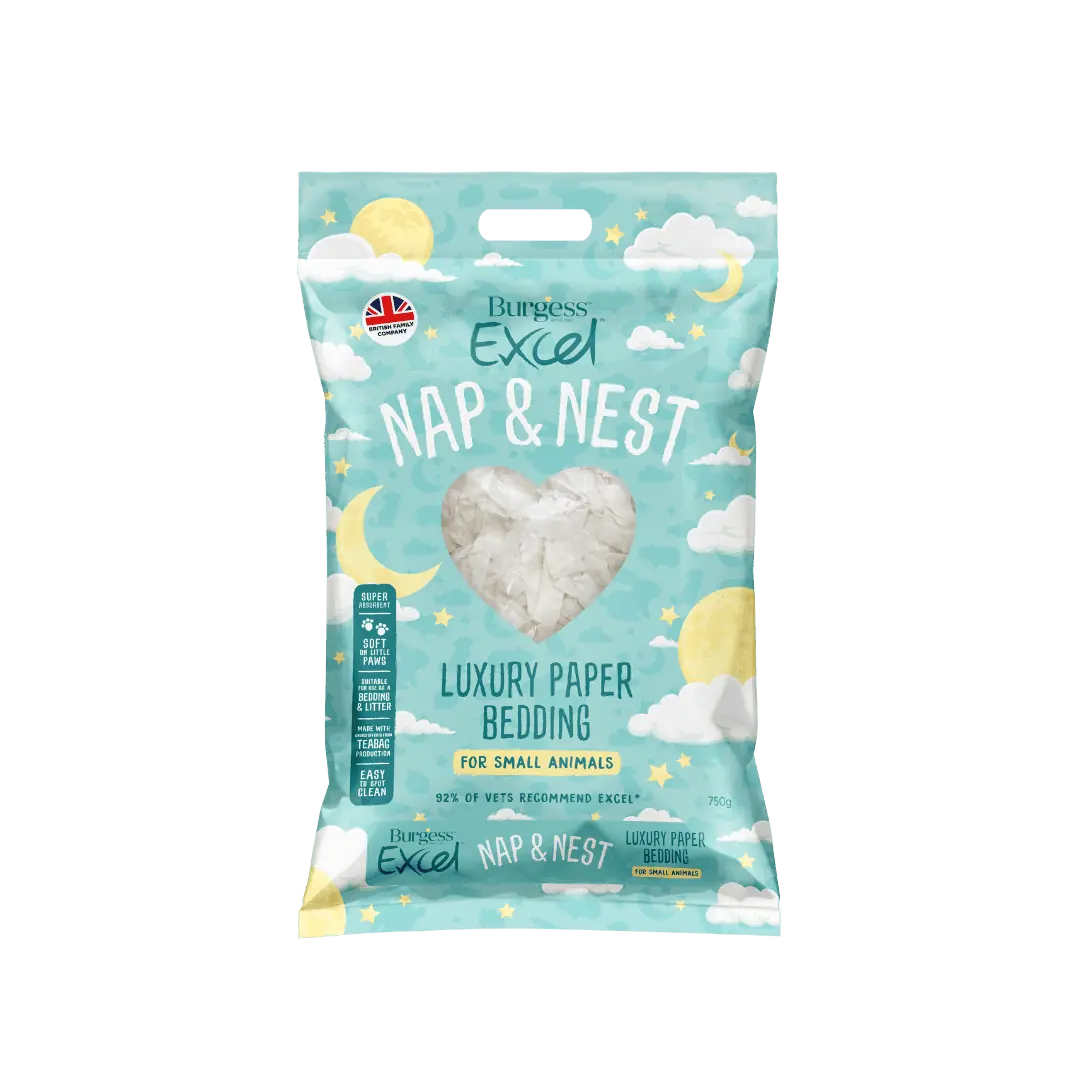
Do you need more advice?
To help you find the right food for your pet have a look at our product range.
You can get in touch with our customer care team who will respond in 3-5 working days. Our dedicated team of pet experts will help you make the right choice.
If you should have any concerns about the health of your pet, always consult a vet.

